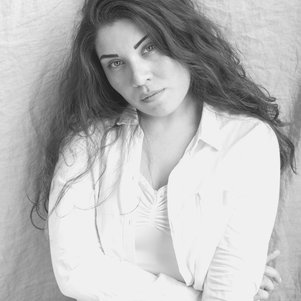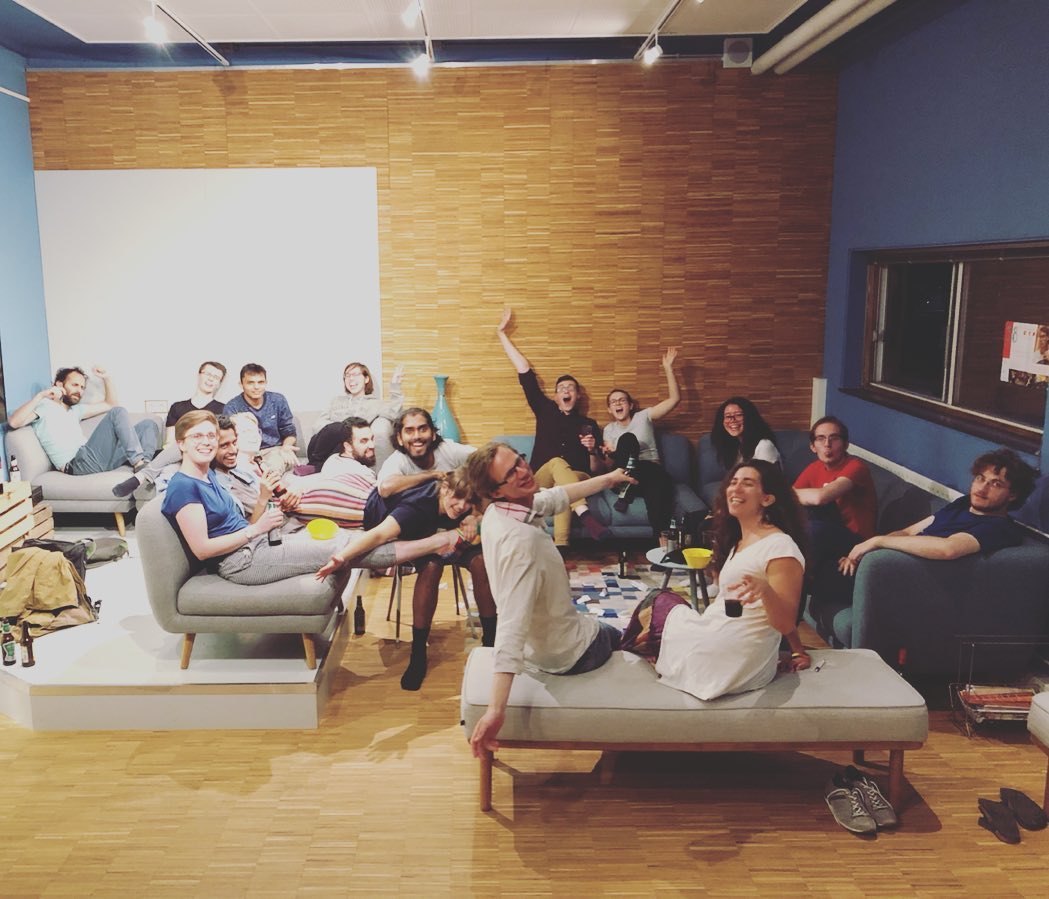The only differences between theatre and real life are privacy and distance. These days, what you do is no longer private, and the only thing you can influence in this is the distance you keep. The one thing in common between theatre and life is ‘to be’. Acting is the staging and training of how to be. Acting is being – so when you take acting classes, beginners or intermediate, you’ll improve the art of being. Music theatre, dance theatre, opera, monologues, stand-up comedy, tragedy or interactive theatre: there are countless forms and styles, and each of them has its own technique.
Acting is really no different from just being 'human'. In practice, however, it works differently when suddenly it’s all taking place on a stage in front of an audience.
The beginner's course is based on this fact, with safety and trust at the core. We work mainly as a group and build on each other's experiences and insights.
You learn through technical notes/tools to present yourself as a 'human being' on the stage. It is important to always keep in mind that we are not talking heads, but that communication through and from the body is also a very essential form of acting.
You challenge yourself to magnify your own ideas, feelings and 'roles', but sometimes also to do the complete opposite. You will often find out that a role is not at all as distant from you as you initially thought, but that there is an essential thing that comes with it: the spectator.

Femke Lucia
Femke has been dancing, singing, jumping and playing since she can remember. At the moment, in addition to giving theatre lessons at X, she is taking a course in writing for theatre and film. For her, everything comes together when contact can be made with the other and a meeting takes place. Apart from everything Femke does, she is above all a storyteller. Femke: 'The power of art lies, for me, in the unexpected encounter'.
Rates
Category 1 - Student
Category 2 - TU Delft employee
Category 3 - Other
You do not need an X-subscription to follow this course. However, you do need an account in our webshop, which yo can create with your NetID. Don't have a NetID? Then drop by X to create an account.
Practical Information
Wear clothing you feel comfortable in.
Acting is really no different from being an actual 'human being'. In practice, however, it works differently when suddenly it’s all taking place on a stage in front of an audience.
Don't think but act! Easier said than done. This course is all about making the connection between these two things. Not only do you practise this with the whole group, but you also sometimes get to work on the material as part of smaller groups or even individually. This is a class where there is no such thing as doing it the ‘right’ way. You will observe each other individually and learn how to reflect on the other person.
In this course, you will also delve into different styles and approaches to theatre, talk to each other about the material, observe each other and reflect and feedback what you see (rather than what you think), and take on the challenge of sometimes doing something you’re unfamiliar with. Learning through experience and engaging in conversation with each other.
We shift the focus each quarter:
Quarter 1: Dialogue-Monologue
Quarter 2: Character development
Quarter 3: Physical theatre
Quarter 4: Making theatre

Femke Lucia
Femke has been dancing, singing, jumping and playing since she can remember. At the moment, in addition to giving theatre lessons at X, she is taking a course in writing for theatre and film. For her, everything comes together when contact can be made with the other and a meeting takes place. Apart from everything Femke does, she is above all a storyteller. Femke: 'The power of art lies, for me, in the unexpected encounter'.
Rates
Category 1 - Student
Category 2 - TU Delft employee
Category 3 - Other
You do not need an X-subscription to follow this course. However, you do need an account in our webshop, which yo can create with your NetID. Don't have a NetID? Then drop by X to create an account.
Practical Information
Wear clothing you feel comfortable in.
The Delft Improv Group (DIG) offers improv sessions for players of all levels, in collaboration with X. The first two sessions you join are free. So you can just come by and see if improv is something for you. If you want to continue after that you are required to become a member of the association.
The improv sessions are being held every Thursday from 19:00 - 21:30 in Rhythm. During each session, the fundamental rules of improv are thought, not only for the understanding of the first-timers, but to also to make them familiar to the experienced members. The best way to get better from there is to just keep playing, which is exactly what the sessions are meant for.
DIG offers you the opportunity to hone your improv skills in an international environment with members from very different backgrounds, and with different levels of improv theatre experience. The group also performs shows twice every three months (roughly), thereby providing several opportunities to play for an audience as well.
Is your question not answered here, or do you want more information? Please visit our website or feel free to send an email to info@delftimprov.com.
Association
Rates
You need a valid X year subscription and association membership to participate.
X subscriptionPractical Information
| All levels |
| Closed training |
| You'll need a membership of the association. |
| Wear comfortable clothing and bring a bottle of water. |


